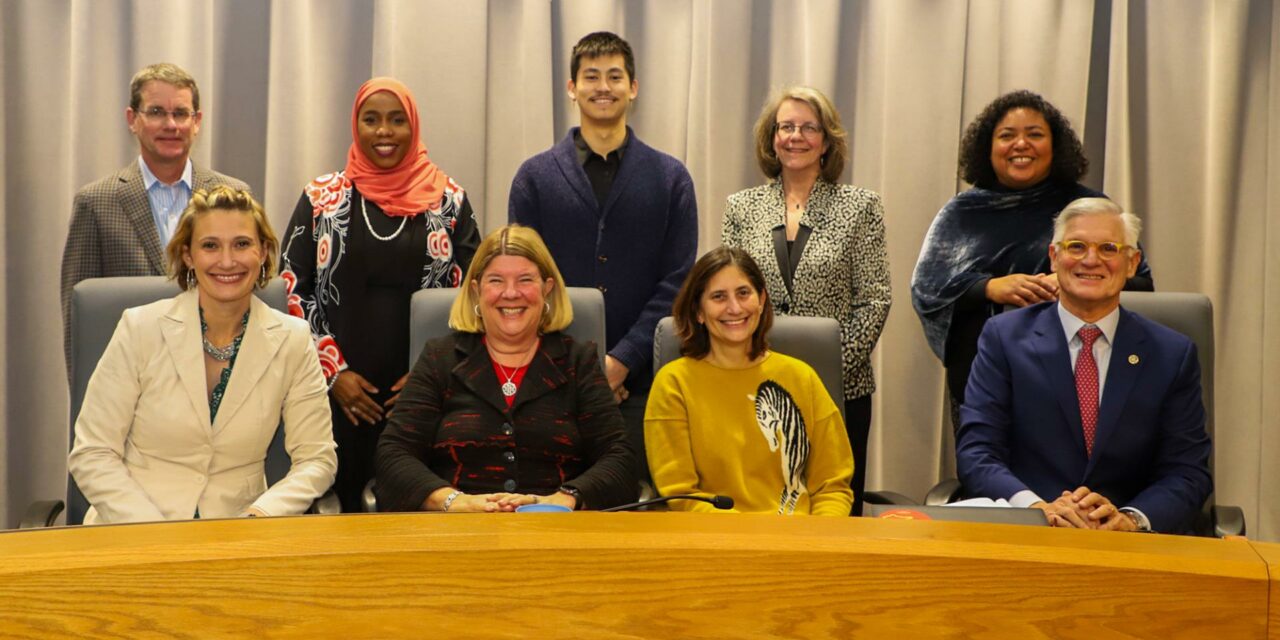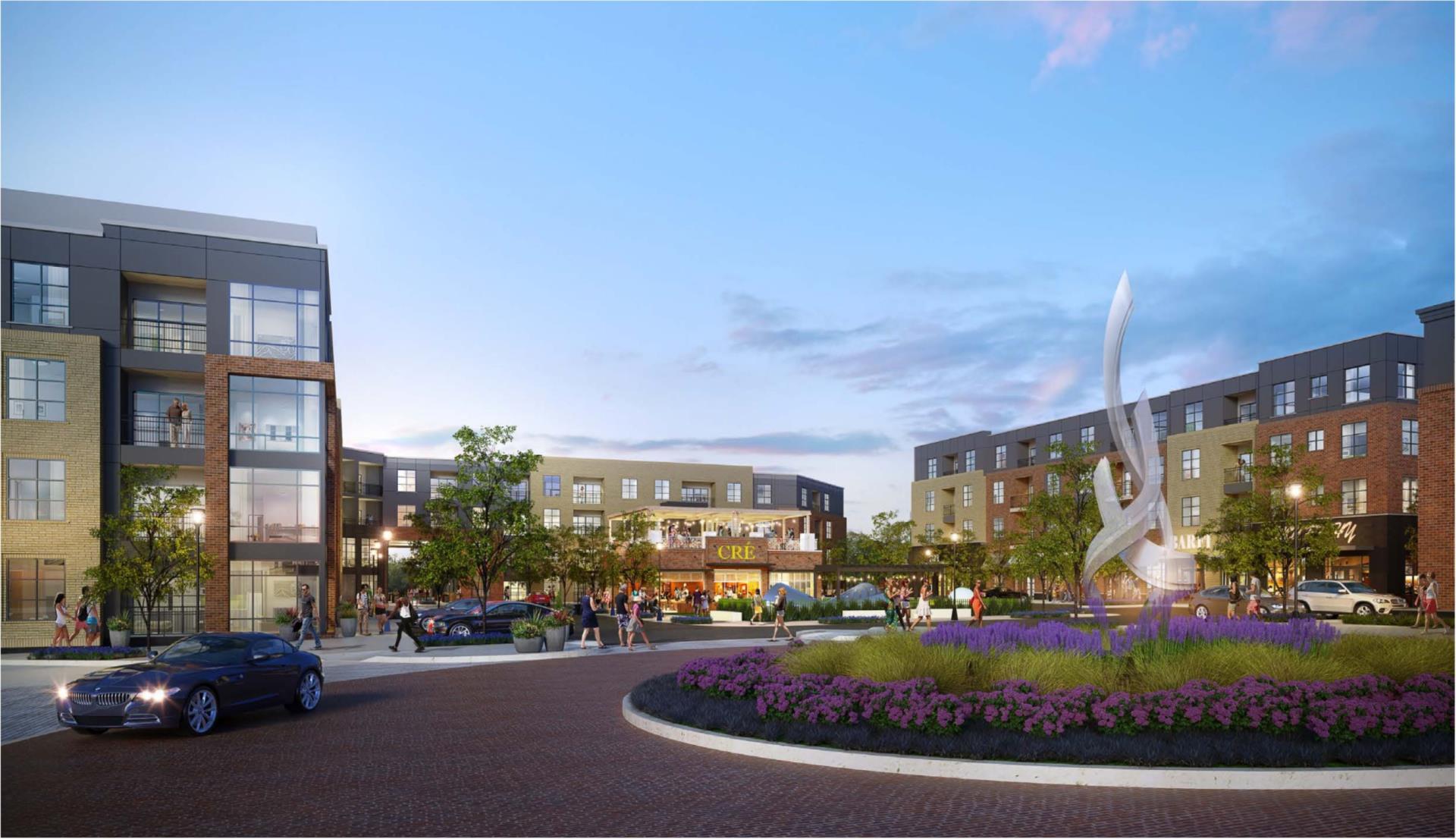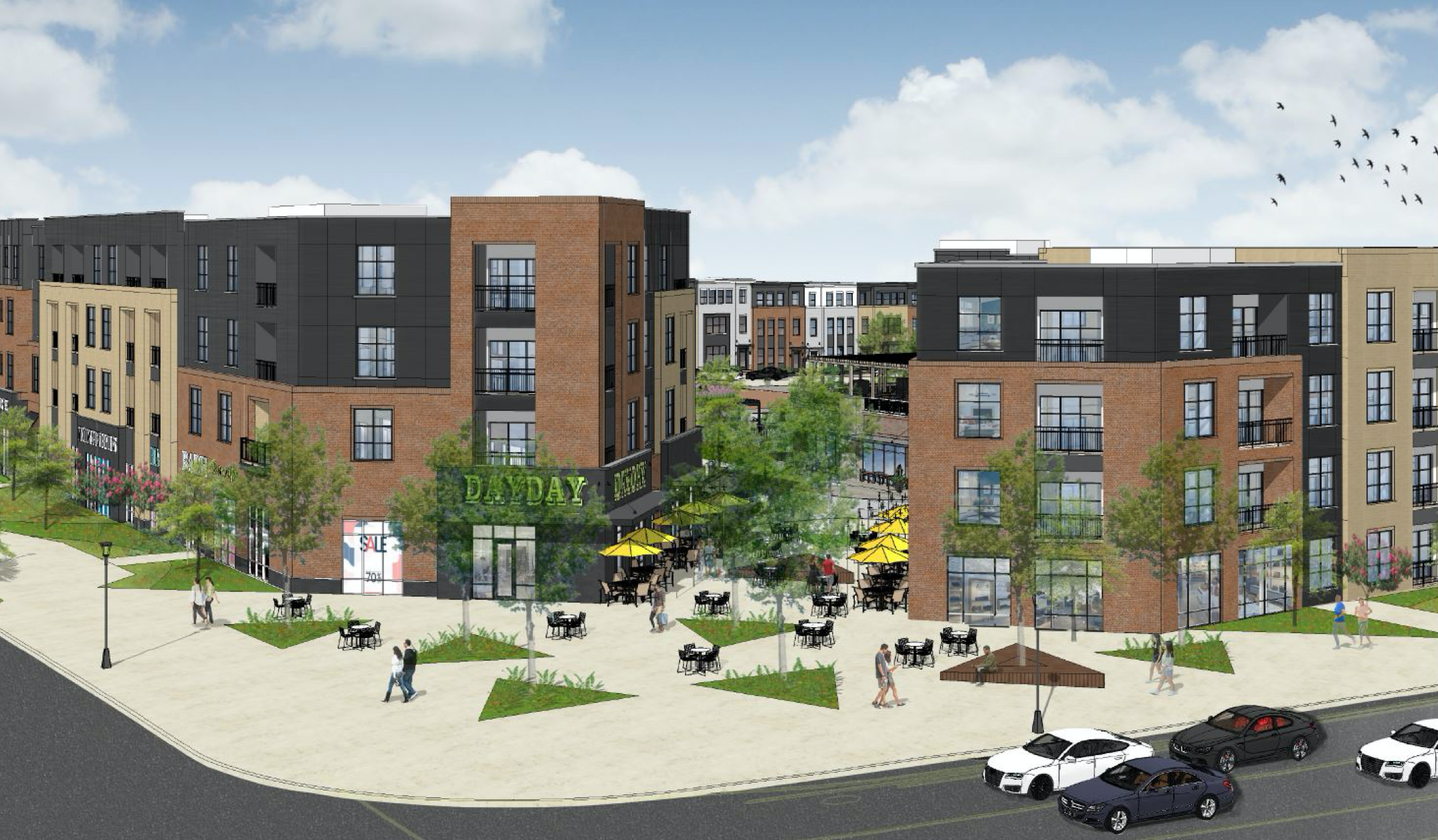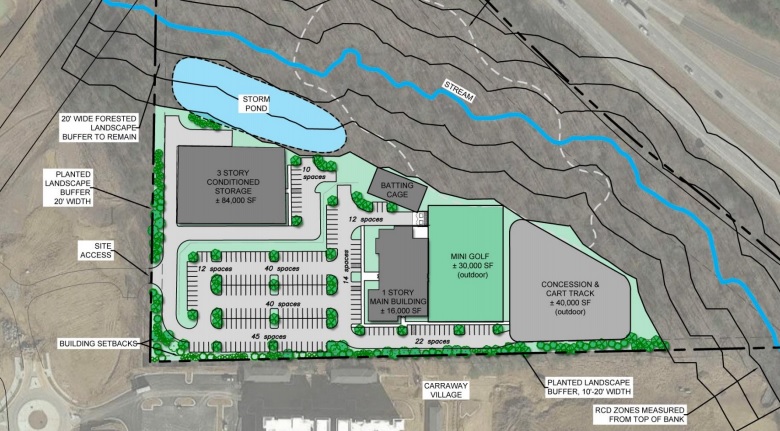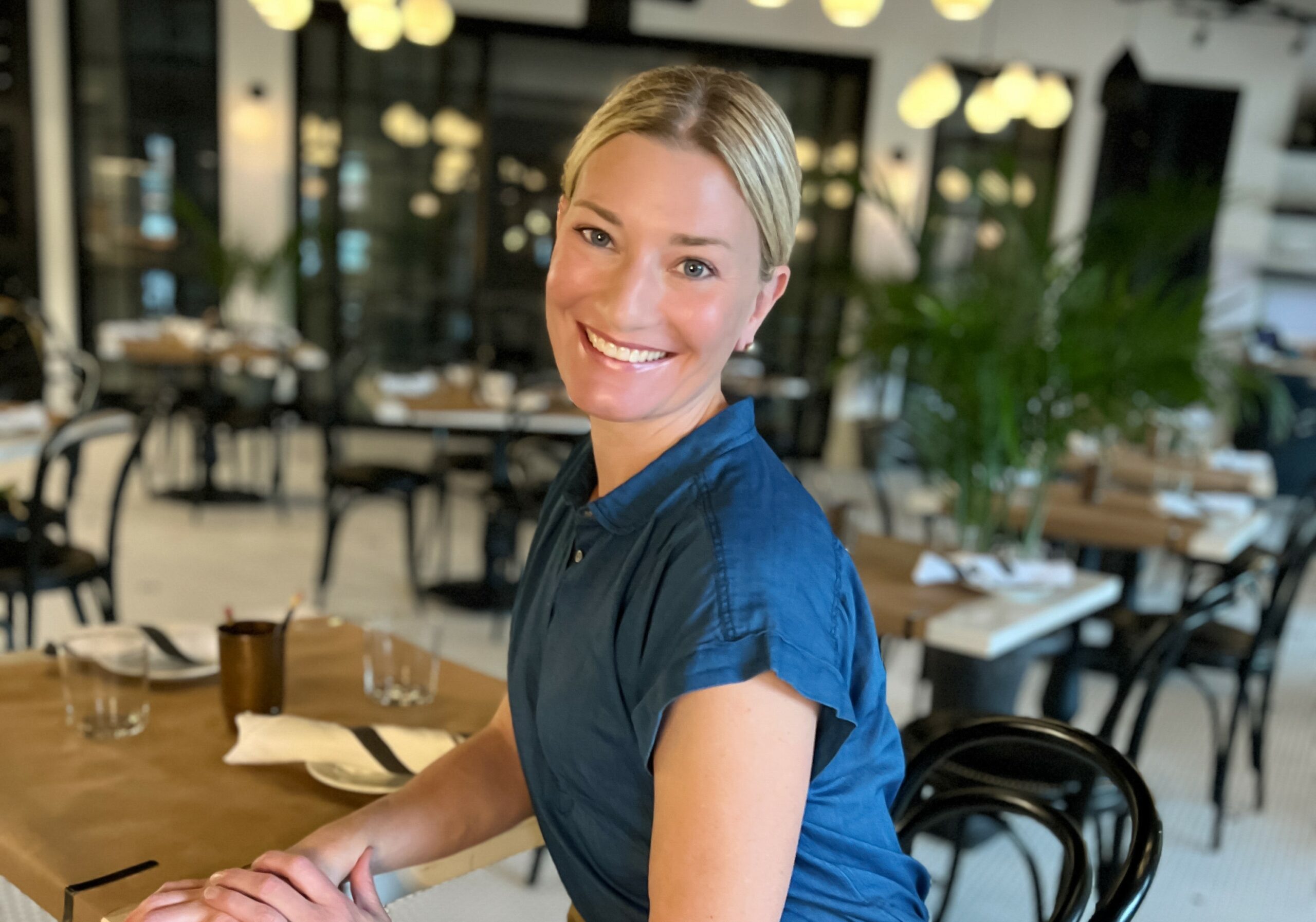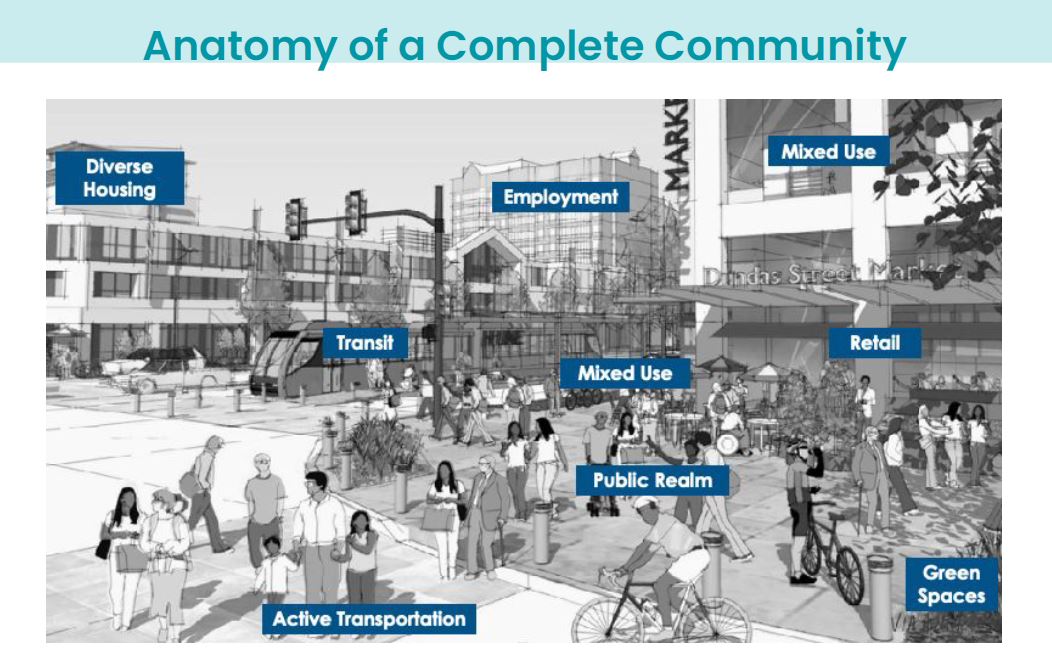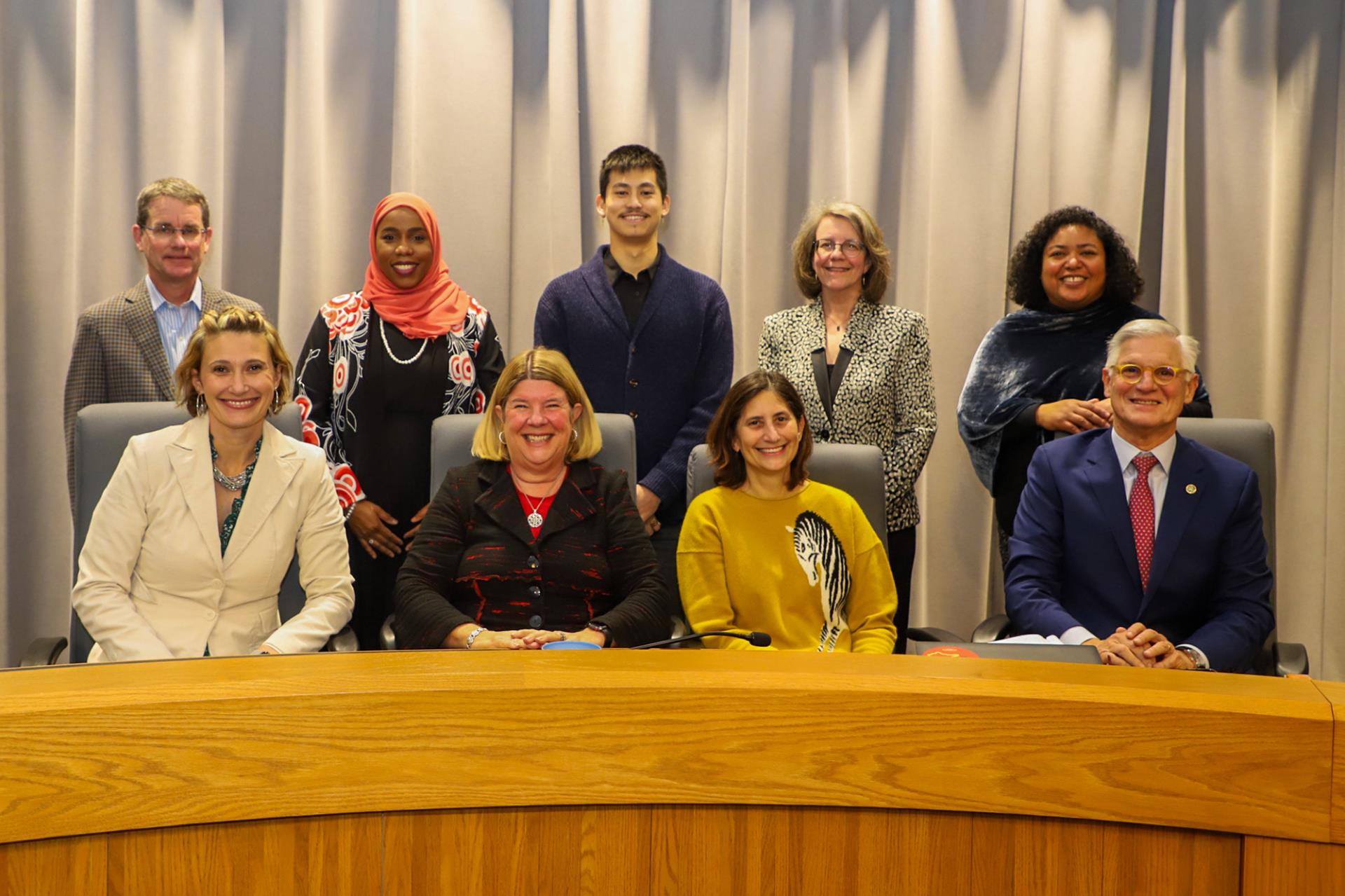The Town of Chapel Hill finished a six-month-long consultancy with some leading urban planners and designers earlier this month, as elected officials formally adopted a framework to help better inform plans for local growth.
The Complete Communities Framework will help guide town staff, town council members, developers, and other stakeholders to better develop Chapel Hill in environmentally- and space-conscious ways. After surveys, conversations and studies, the consultancy group crafted the strategies — which town council reformed over several meetings — to reflect how they wish to direct growth toward existing greenways, transit corridors and both small and large infill sites.
As part of the consultancy, urban planner Jennifer Keesmaat of The Keesmaat Group encouraged the town council to pick pilot projects to try out this framework. The idea of quickly, but intentionally building with these updated visions will provide a tangible example to officials and citizens alike.
“The goal,” she described during the town council meeting on December 7, “is to demonstrate that transformative change is possible in Chapel Hill; to build trust in council’s capacity to act and advance change; to lay the foundation of the strategic initiatives; and to begin the process of delivering on the promise of Complete Communities.”
In a previous meeting, Chapel Hill Town Council members had already voiced support of two pilot projects suggested by Keesmaat and the other consultants: seeking to create an everywhere-to-everywhere greenway system with help from federal funding, and to enter a partnership with UNC to redevelop 720 and 730 Martin Luther King Jr. Boulevard.
But since the greenways project requires more federal involvement and the Midway Market project can begin immediately, the council also considered choosing a more long-term project to try out the Complete Communities Framework on. Ultimately, they unanimously selected the Parkline office property off Fordham Boulevard to seek further development on part of its 36 acres. The former headquarters to Blue Cross and Blue Shield, which was constructed in the 1970s, has approximately 21 acres of land for sale for several uses.
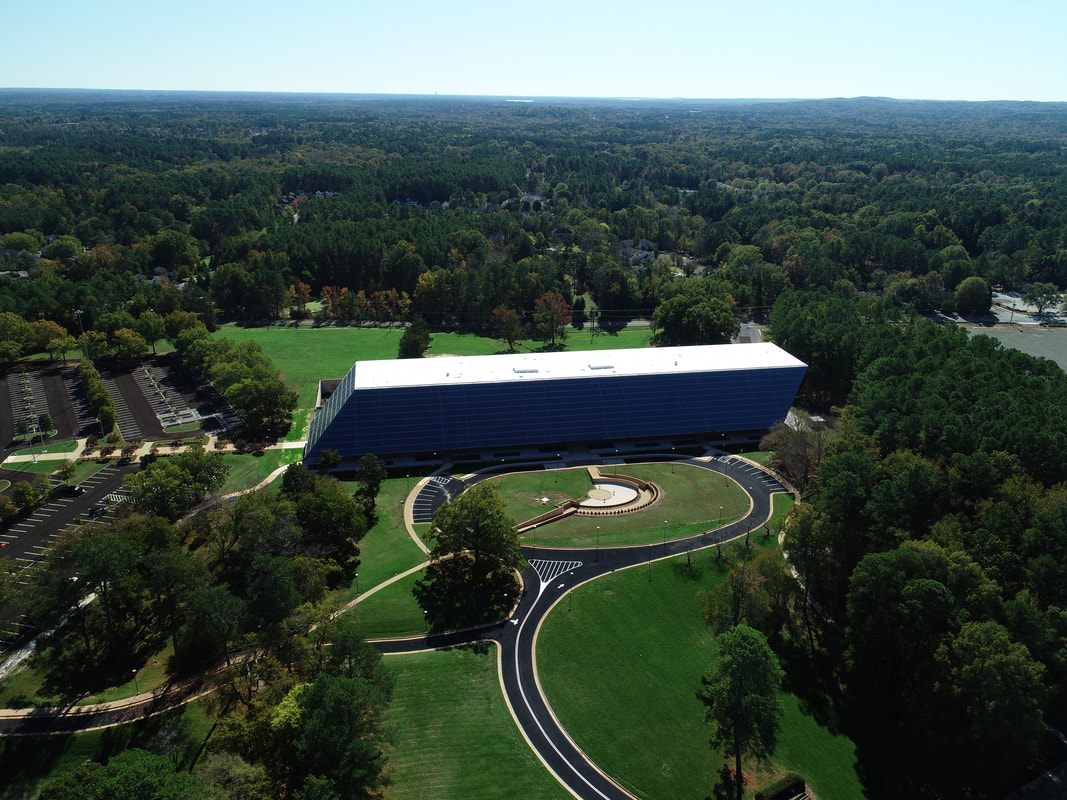
The Parkline property is at 1830 Fordham Boulevard, close to the county line and Interstate 40. (Photo via The Parkline.)
Keesmaat said she favored this site as the long-term pilot project because there’s already “momentum” and “interest” from outside developers who are willing to partner with the town and build with their new strategies in mind.
“And I’ll just note,” Keesmaat added, “a significant amount of housing can be accommodated here, in a relatively dense urban form. Layering things in, like getting the natural areas right, the links into the greenway network, ensuring there is a very strategic approach to stormwater management – those are all key objectives of the Complete Community Framework that can be housed within the scope of the Parkline redevelopment.”
Keesmaat said preliminary conversations with stakeholders have already been held. The next step for Chapel Hill staff and council members is to negotiate with those same groups to determine their level of interest, their timelines, and desired scope for the eventual development. Keesmaat said establishing a Memorandum of Understanding (MOU) will be a critical for the town council to do once ideas for the site become clearer.
The Complete Communities consultancy group also identified other long-term properties for the town to consider for its pilot projects. While some council members expressed interest in exploring another in addition to their trio, Town Manager Maurice Jones cautioned about his staff’s capacity to handle it. He said other extensive development and ongoing projects at hand would create a log-jam of town interests.
“We can start them now, the two that have been identified,” Jones said Wednesday. “But to add any more right now, I just don’t think to give it everything that we need to in order to make it successful at this point.”
Chapel Hill Town Council members widely praised the Complete Communities Framework and the cooperation of the consultancy group for helping reshape their mentality around future growth. Council member Amy Ryan said she’s believed the town’s needed more detailed visioning for a very long time and said Chapel Hill will “make amazing things happen” for a community of its size.
“I agree the project-by-project system does not build a city the way we want to build it,” said Ryan. “This will allow for the growth we need – it will help us protect our natural spaces and greenways, it will help us build on our town strengths. I know when you [Keesmaat] came in and looked at our build form and said ‘oh my gosh, how do we do this? Wait a minute, that [unique layout is] our strength.’ You flipped it around and made it happen.”
Council Member Karen Stegman echoed those remarks and said she feels as if the town council has been able to rally around this “cohesive vision” despite everyone having their own ideas.
“I do think it’s already changing how we are working and how developers are coming to us,” Stegman said. “You were able to incorporate a lot of our goals around climate, multi-modal transit, equity – all of those things you were hearing from us and somehow put it together into something that we really are excited about.”
To better help cement the Complete Community strategies into Chapel Hill’s planning process, the council will vote to update the town’s Comprehensive Plan with the framework’s language in 2023. A full copy of the approved resolution from the December 7 meeting can be viewed here.
Photo via Town of Chapel Hill.
Chapelboro.com does not charge subscription fees, and you can directly support our efforts in local journalism here. Want more of what you see on Chapelboro? Let us bring free local news and community information to you by signing up for our biweekly newsletter.

